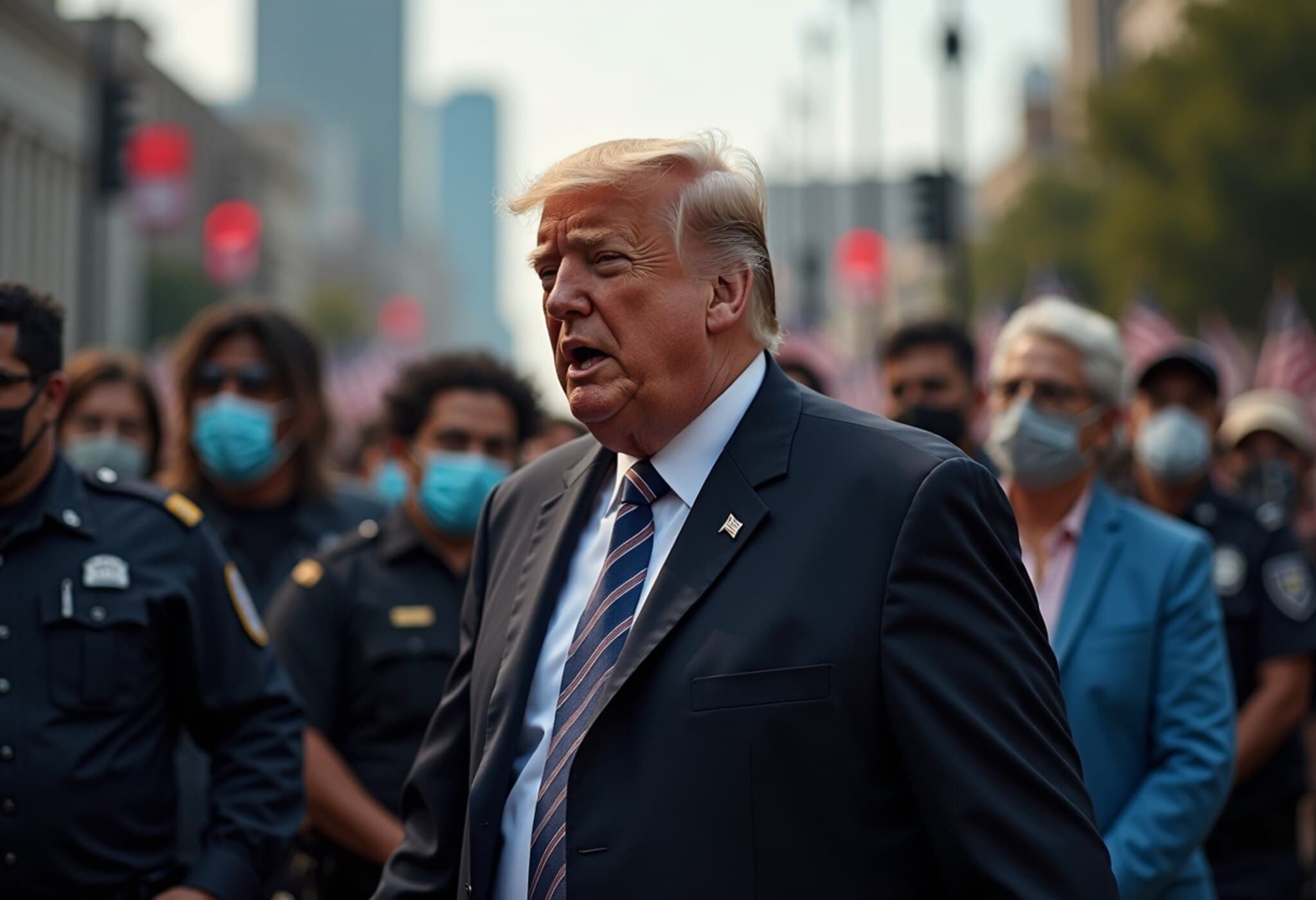New Trump-Era Policy Accelerates Deportations to Third Countries with Minimal Notice
In a striking shift in U.S. immigration enforcement, a recently leaked memo reveals that the Department of Homeland Security's Immigration and Customs Enforcement (ICE) can now deport migrants to countries other than their own with as little as six hours’ notice. This expedited process is a centerpiece of the Trump administration’s controversial strategy to accelerate removals and reduce the number of migrants residing in the United States unlawfully.
Policy Details: Speed Over Safeguards
Traditionally, ICE has provided migrants a minimum of 24 hours’ notice before deporting them to a so-called “third country”—a nation other than the migrant’s country of origin, but one that has agreed to accept them. However, a July 9 memo from acting ICE Director Todd Lyons authorizes deportations within six hours in what are categorized as “urgent situations.”
Migrants can be sent to these third countries based solely on assurances that they will not face persecution or torture, bypassing further judicial review or legal protections. This swift process marks a significant dilution of procedural safeguards, raising questions about the thoroughness of protections afforded to vulnerable populations.
Judicial Context and International Implications
The policy resurgence follows a pivotal June 2025 US Supreme Court ruling that overturned a lower court injunction blocking deportations without prior thorough evaluation of potential persecution in the receiving country. This legal green light enabled ICE to deport at least eight migrants originating from Cuba, Laos, Mexico, Myanmar, Sudan, and Vietnam to South Sudan, marking a new chapter in third-country removal operations.
Further illuminating the administration’s scope, diplomatic communications reveal attempts to enlist multiple African countries—including Liberia, Senegal, Guinea-Bissau, Mauritania, and Gabon—to accept deported migrants from various regions. This international outreach has profound humanitarian and geopolitical dimensions, as these nations grapple with the potential influx of displaced individuals.
Expert and Advocacy Perspectives: Risks and Criticism
Proponents within the administration argue the policy streamlines the removal of individuals who pose security risks or do not qualify for asylum, especially migrants with criminal histories. They frame it as a necessary mechanism to uphold immigration laws efficiently.
Conversely, immigration lawyers and human rights advocates strongly denounce the policy as reckless and inhumane. Trina Realmuto, an attorney representing migrant groups challenging the legality of third-country deportations, underscored that the policy “falls far short of providing the statutory and due process protections that the law requires.” Many critics warn that expedited deportations could cast vulnerable migrants into unfamiliar environments where language barriers, absence of social networks, and risks of violence persist.
Understanding the Bigger Picture: Legal, Ethical, and Policy Challenges
- Due process concerns: The six-hour notice drastically limits migrants’ ability to obtain legal counsel or prepare their cases, raising questions about procedural fairness.
- International law and human rights: Sending migrants to countries without comprehensive vetting risks violating non-refoulement principles—international protections against returning individuals to danger.
- Diplomatic pressure: The administration’s push to have African nations accept deportees may strain bilateral relations and place undue burden on countries with limited resources.
- Impact on migrants and communities: Rapid removals disrupt lives with little opportunity for migrants to secure safety or integration prospects in third countries.
As immigration remains a flashpoint in American political discourse, policies like these raise fundamental questions about balancing effective border enforcement with human dignity and rights protections.
Editor’s Note
The Trump administration’s expedited deportation policy underscores an urgent need for transparent oversight and robust legal safeguards to protect migrants’ rights. While border security and immigration control are legitimate governmental objectives, they must not come at the expense of fundamental human rights and due process. Readers should consider how such policies align with America’s commitments to justice and international asylum standards, especially as they affect some of the world’s most vulnerable populations.














